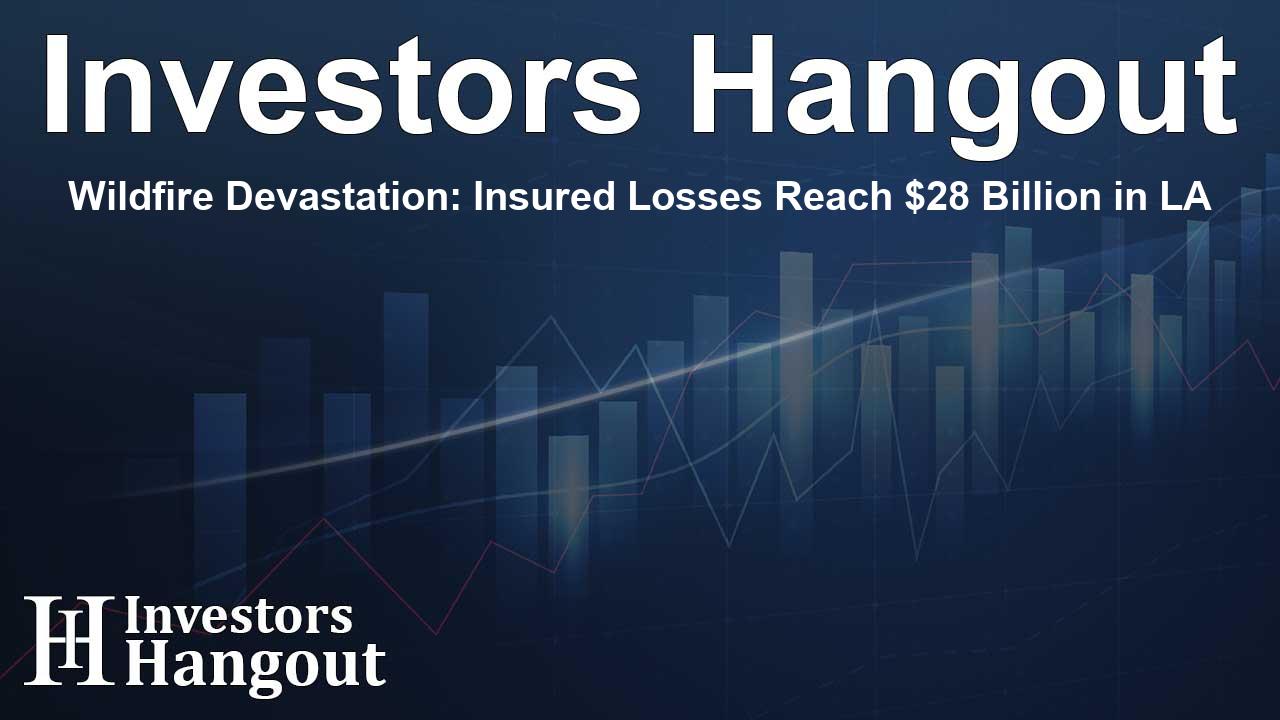Wildfire Devastation: Insured Losses Reach $28 Billion in LA

Staggering Impact of Los Angeles Wildfires
Recent estimates from catastrophe risk modeling firm KCC indicate that insured losses from the Los Angeles wildfires could reach approximately $28 billion, positioning them as the most costly wildfires in U.S. history.
Extent of Damage
The wildfires, which ignited early in January, have wreaked havoc across an area comparable to that of Washington, D.C. Tragically, 28 lives have been lost, and nearly 16,000 structures have been damaged or destroyed, according to data released by California's fire department.
Widespread Catastrophic Claims
Insurers from both the U.S. and Europe are bracing for a wave of catastrophe-related claims potentially amounting to billions of dollars due to this disaster.
Components of Estimated Losses
KCC's comprehensive report outlines that the estimated losses encompass damage directly caused by the fires, smoke impact, and additional time-element losses for individuals residing in evacuation zones whose properties were not physically damaged.
Insurance Coverage Insights
Many of these projected losses are expected to fall within the typical coverage provided by standard insurance policies, which should mitigate some of the financial burden.
Insurance Sector under Pressure
The insurance industry has been facing significant challenges due to escalating catastrophe claims arising from numerous wildfires and other natural disasters in recent years, exacerbating the financial pressure on providers.
Fires in Detail
The Palisades Fire, for instance, has scorched nearly 24,000 acres across the scenic Santa Monica Mountains, affecting local communities like Pacific Palisades and Eastern Malibu. Meanwhile, the Eaton Fire burned over 14,000 acres within the acclaimed Angeles National Forest, impacting the towns of Altadena and Sierra Madre.
Further Loss Estimates
Additionally, Verisk has issued its own estimates, projecting losses from the wildfires to range between $28 billion and $35 billion, reinforcing the severity of the situation and the ongoing impact on both the affected residents and the insurance landscape.
Frequently Asked Questions
What are the estimated insured losses from the LA wildfires?
The estimated insured losses from the Los Angeles wildfires are approximately $28 billion.
How many people were affected by the wildfires?
Tragically, 28 people lost their lives due to the wildfires in Los Angeles.
What areas were most impacted by the fires?
The most severely affected areas include the Santa Monica Mountains, Pacific Palisades, Eastern Malibu, and the Angeles National Forest.
Are insurance companies prepared for these claims?
Insurance companies are preparing for significant claims, potentially in the billions, due to the overwhelming impact of the wildfires.
How do typical policies cover wildfire damages?
Typical insurance policies are expected to cover the damages resulting from the fires, including direct damage as well as smoke and temporary housing costs for evacuees.
About The Author
Contact Dylan Bailey privately here. Or send an email with ATTN: Dylan Bailey as the subject to contact@investorshangout.com.
About Investors Hangout
Investors Hangout is a leading online stock forum for financial discussion and learning, offering a wide range of free tools and resources. It draws in traders of all levels, who exchange market knowledge, investigate trading tactics, and keep an eye on industry developments in real time. Featuring financial articles, stock message boards, quotes, charts, company profiles, and live news updates. Through cooperative learning and a wealth of informational resources, it helps users from novices creating their first portfolios to experts honing their techniques. Join Investors Hangout today: https://investorshangout.com/
The content of this article is based on factual, publicly available information and does not represent legal, financial, or investment advice. Investors Hangout does not offer financial advice, and the author is not a licensed financial advisor. Consult a qualified advisor before making any financial or investment decisions based on this article. This article should not be considered advice to purchase, sell, or hold any securities or other investments. If any of the material provided here is inaccurate, please contact us for corrections.
